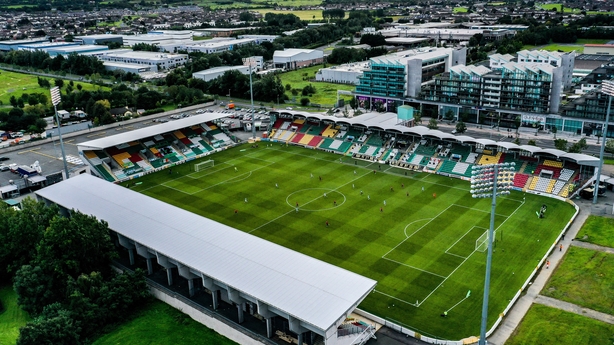Minister of State for Sport Jack Chambers has said that the Government is putting in place "a clear pathway back" for spectators to be able to watch their teams playing sport.
Speaking on RTÉ's Today with Claire Byrne, Mr Chambers said it was important to get fans back outdoors, and that it was safe and at a distance.
"This is about people enjoying their match and to give them an opportunity to get back and see their team," he said.
He said that from June any games outdoors can have 100 fans at a local match, with this increasing to 200 in July.
For larger stadiums that have a capacity for 5,000 or more, there will be 200 spectators allowed in June and 500 from July.
Mr Chambers said clear protocols will be provided for sporting bodies to follow and this will be regulated by teams and local organisations.
He said this will allow parents and grandparents back to watch their children and grandchildren playing sport.

Mr Chambers said the guidelines for these pilot games will be published in the coming days and it will run over three weeks.
He said the aim of the pilot scheme is to produce a controlled environment in the stadium with a range of measures in place to control the risk of Covid-19 spread.
This includes in-ticketing, mask wearing, social distancing rules and codes of conduct for spectators, as well as plans with local authorities and gardaí to organise and control the impact on local communities.
He said each ticket will have a named person on it that is verified and checked, with specific entry times staggered and contact tracing will be linked to ticket holders, so that if a Covid-19 case emerged it can be tracked.
Mr Chambers said that sporting bodies and clubs will decide on the allocation of tickets and whether they will be distributed or sold.

Crowd management and control is key to the pilot games, he said, in order to build confidence for a safe return for spectators that is low-risk.
The minister said a debriefing will follow each pilot event and then be shared with sporting organisations.
These events will begin with just 5-10% of capacity, with 3,000-4,000 fans allowed in Croke Park, for example.
There will not be a requirement to be vaccinated, but larger numbers may be allowed later in the summer or early autumn when a vaccination bonus allows more people to be admitted.
Mr Chambers said that for now antigen testing is not going to be used, but this will be assessed for each game on a case-by-case basis by an event management structure set up for each game, comprising a HSE liaison committee, local authorities, health and safety specialists and the sporting governing bodies.
He said the public health assessment will also look at transport capacity, and fans arriving, and this will be made clear in the code of conduct.

